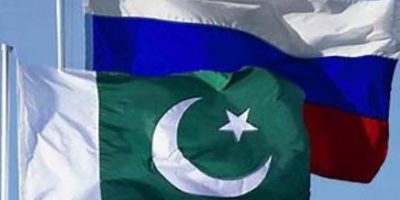PBF says dollar value of Rs 295 for the upcoming fiscal year has been determined by the MOF

Lahore, JUN 2 /DNA/ – The Pakistan Business Forum (PBF) has warned that the business community is likely to experience additional depreciation in the currency. This is due to the Finance Division setting the dollar value at Rs 295 for the upcoming fiscal year budget, indicating an Rs 10 per dollar depreciation in the local currency. Interestingly, the IMF’s report from last month projected the rupee to be valued at Rs 328 to a dollar.
PBF President, Khawaja Mehboob ur Rehman, stated during a press briefing on Sunday that unless a significant amount is credited before the State Bank of Pakistan or the dollar price is capped, further depreciation is inevitable due to scheduled debt payments. The IMF has also advised the government to eliminate subsidies for export sectors and lower import duties in the next budget. However, the Ministry of Commerce has opposed the complete removal of import restrictions, emphasizing the importance of protecting the local market.
He said Pakistan’s weak external economy requires the restoration of political stability in the country. Without this, I don’t think major export-boosting initiatives can work, and not even overseas Pakistanis can be convinced to send more foreign exchange back home.
However PBF is still optimistic and clearly told the finance division that in the new IMF package no further burden shall be put on the business community as competitive energy tariff is direly needed to deliver.
President PBF further said it is the need of the hour to devise regional trade agreements among South Asian countries to improve the economic well being of billions of people; though Pakistan’s regional trade is below the desired level which needs to be seen in whole perspective before SIFC.
“He emphasized that in international relations it is a common axiom that a state can change its friends but it cannot replace its neighbours due to geographical compulsions. If neighbours cannot be replaced, ideally a state should enjoy at least cordial relations with its surrounding states if not the best relations”.
As the average annual economic growth between 2010 and 2023 has been lackluster, around 4 percent, and has been accompanied by a rise in Pakistan’s total debt as a share of its GDP, from 55 percent to 76 percent. Bangladesh, in contrast, grew at an annual average of 6.2 percent over the same period, while its debt to GDP ratio rose from 30 percent to 39 percent, he added.
Khawaja Mehboob viewed the big step Pakistan could take to reinvigorate growth that would be to embrace trade with its neighbours, which is currently almost nonexistent. “The World Bank research, reveals that Pakistan’s exports could increase by 80 percent, with commensurate impacts on GDP and employment, if it had a normal trading relationship with its neighbours”.
Related News

Moscow-Islamabad link explores global challenges
MOSCOW, FEB 25: /DNA/ – The Moscow—Islamabad Media Forum will be held on February 27,Read More

34 India-backed terrorists killed in KP, Balochistan ops over last few days: ISPR
Security forces killed 34 India-sponsored terrorists in a series of high-tempo intelligence-driven operations carried outRead More


Comments are Closed